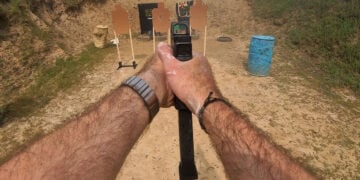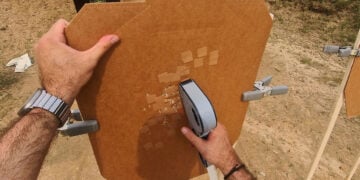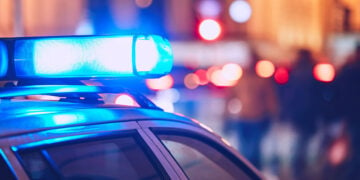
At USA Carry, we get asked tons of questions regarding concealed carry laws, best practices, and the like. We do our best to answer those questions in a timely fashion. It has come to our attention, though, that there’s a bit of repetition in some of those questions and felt it would be great to address those general questions here.
Q1: “My friend used his concealed carry pistol in a self-defense incident. What should he do now?”
The second your concealed carry pistol leaves its holster and is used against a perceived threat, the internet is no longer the place you go for answers. While we try to do the best to prepare our readers for some of the issues surrounding self-defense, we are not attorneys. Every single encounter where you pull your pistol, there’s going to be a legal ramification for that. We don’t answer those questions — an attorney does.
Q2: “Should I get CCW insurance?”
We’ve covered part of this in another article. A concealed carry insurance policy that properly covers the expenses surrounding a self-defense event should include the following, at the minimum:
- Bail assistance
- Monetary help with legal costs associated with the case (criminal or civil)
- Attorney retainer fees
- 24/7 Support
In the event of a concealed carry self-defense incident, you want to know that your policy will immediately jump into action. If your policy says it will reimburse your costs or otherwise not be there upfront when you need it — it’s largely worthless unless you’re so incredibly wealthy that you can cover all the upfront costs. And always shop around!
Q3: “I’m going on a weekend trip to XYZ. What do I need to do to carry concealed?”
We can’t answer that. What we can do is point you in the direction of our concealed carry reciprocity maps. It is your responsibility to determine the laws of the state you are visiting. We provide some of that information on a basis of general information. The final word always comes from the state itself. If you look up “concealed carry” in the state you’re visiting, go to the “.gov” site for their concealed carry control agency. Sometimes it’s the state police, sometimes it’s the attorney general. They usually have an FAQ (frequently asked questions). Ignorance of the law is never an excuse.
Q4: “I had a restraining order put out against me during the application process for my CCW permit. Will this stop the process?”
If you get a restraining order taken out against you, most states prohibit you from getting a concealed carry permit. In fact, most states prohibit you from carrying a firearm outside of your property. If you’re in the middle of a concealed carry application process and something like this comes up, your best bet is to inform the authority immediately. The reason is this — even if they fail to catch that detail, they will catch it later on and then likely revoke the permit. It’s better to let them know up front and determine what the course of action is from there. If you feel this situation may apply to you, please contact an attorney and discuss your options.
Q5: “My friend used his pistol in self-defense and was cleared of all wrong-doing. The police still have his pistol and he wants to get it back. How would he go about doing that?”
That process is called civil forfeiture. When you’re involved in a self-defense shooting, the police may confiscate your firearm until you’ve been cleared of any wrong-doing. When they collect your firearm, you need to get a receipt from them stating the serial number, make and any identifying information about that pistol. That’s a receipt you can then use to submit through the proper channels to getting your gun back. There is a timeframe under which you can do this and if you wait too long, your gun will probably go up on auction.
Q6: “What type of pistol should I get for conceal carry?”
We’ve addressed this is numerous articles but the short answer is: whichever one you feel confident in wearing and shooting. Check out our article: Top 21 Concealed Carry Guns
Q7: “What’s the cheapest pistol on the market?”
I’m not sure but it’s probably in vicinity of a Hi-Point 9mm. Some people love them — most loathe them. We go over this in our recent article, Why You Don’t Have to Break the Bank to Concealed Carry.
Q8: “Is it better to keep a gun locked up in the car so it’s ready or keep it on me while I’m driving?”
If you’re going to be inside the vehicle, your firearm needs to be secured — either in a locked compartment or on your person. On you, though, is better. Why? Because if you’re stopped at a red light and Magic Shoes McRobberson decides to mug you, you have your firearm at the ready.
Q9: “I hear you guys talk about training and stuff but this other guy says I don’t need any training — is that true?”
We’re not going to tell you how to live your life. There’s no guarantee because you train, you’ll be ready when that fateful moment arrives. If you DO train, at least you know how to react when things go wrong — i.e. magazine jam, weapon malfunction, etc. There’s a lot more reasons to train other than that, but that’s definitely a good one.
Q10: “Concealed carry permits are a tax on our liberties as Americans. How can you support concealed carry and say you’re pro-2A?”
Easy. We work to enable responsible concealed carry practices. We try to stay out of the politics but the more informed we all are, the more we’ll be able to positively affect legislature that impedes or restricts concealed carry.









